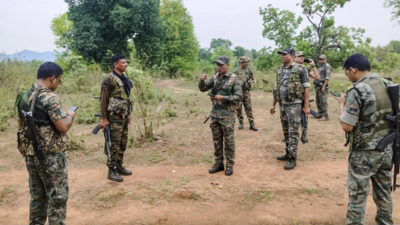
NEW DELHI: Surveillance drones, bomb disposal squads and canine teams will be deployed along the two designated routes of the Amarnath Yatra, as part of heightened security measures that also include the highest ever deployment of CRPF personnel for the 38-day event.Nearly 50,000 CRPF personnel, in addition to the J&K police, will fan across the route of the yatra, engaging in road opening (ROP) duties to detect and defuse IEDs, besides having quick action teams stationed at vantage points. All approach roads and routes to the national highway will be blocked when the yatri convoys, escorted by CRPF troops who will be equipped with satellite phones, will pass through. All convoys will have jammers.The Amarnath yatra, which is much shorter than its 52-day edition last year, comes in the wake of the April 22 terrorist attack in Pahalgam, which killed 25 tourists and a local, and led to retaliatory strikes on terror bases in Pakistan as part of Operation Sindoor. When the Pakistani forces hit back by trying to target civilian settlements and military assets here, the Indian armed forces responded with full force, carrying out precision strikes on several military targets in Pakistan.Like the past year, there will be radio frequency IDs for both the yatris and convoy vehicles, to help the security forces track their onward journey and return. Drones will keep an eye on any suspicious movement along the yatra routes — both through Pahalgam and Baltal — and quick action teams will swoop in to neutralise such elements before they can strike.CRPF is already providing security to the Chenab and Anji rail bridges in J&K.Joint police control rooms will be set up along the two Amarnath pilgrimage routes for enhanced coordination among the security agencies and forces, to immediately resolve issues faced by the yatris. There will be mountain rescue teams as well to aid the yatris.Another security measure on the table is to have plain-clothed security personnel as ‘marshals’ in the buses carrying the yatris.














